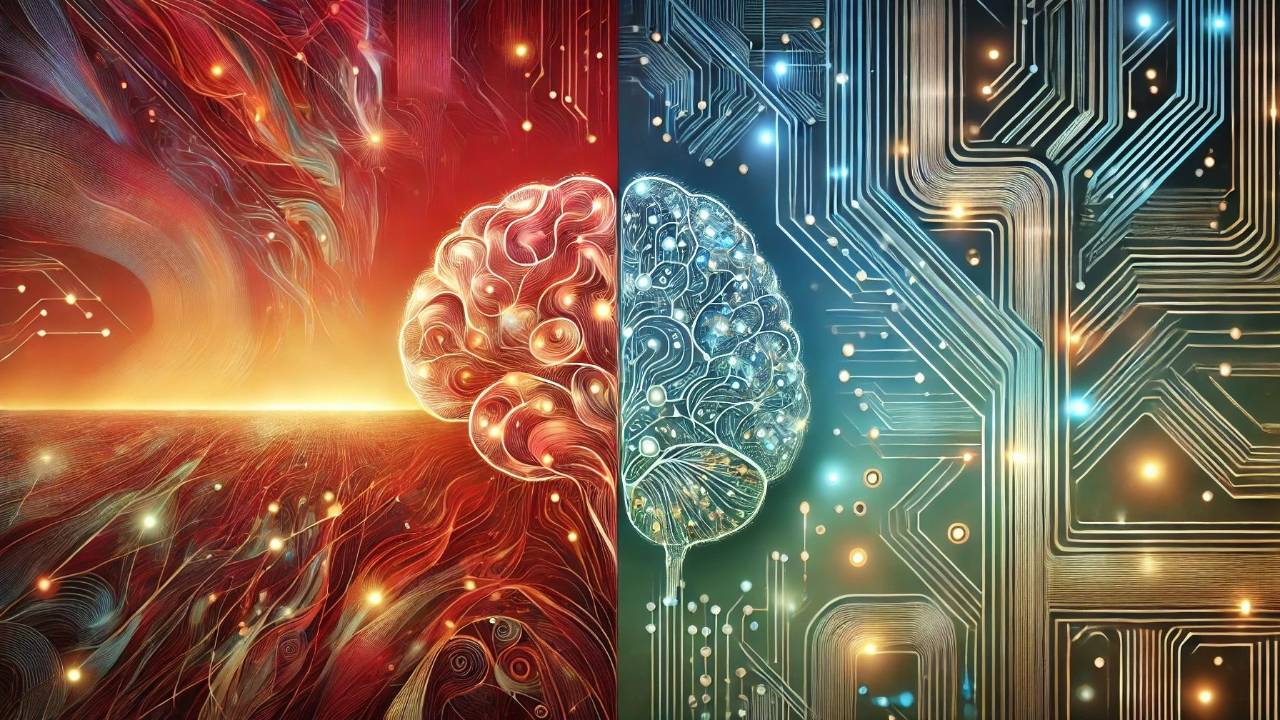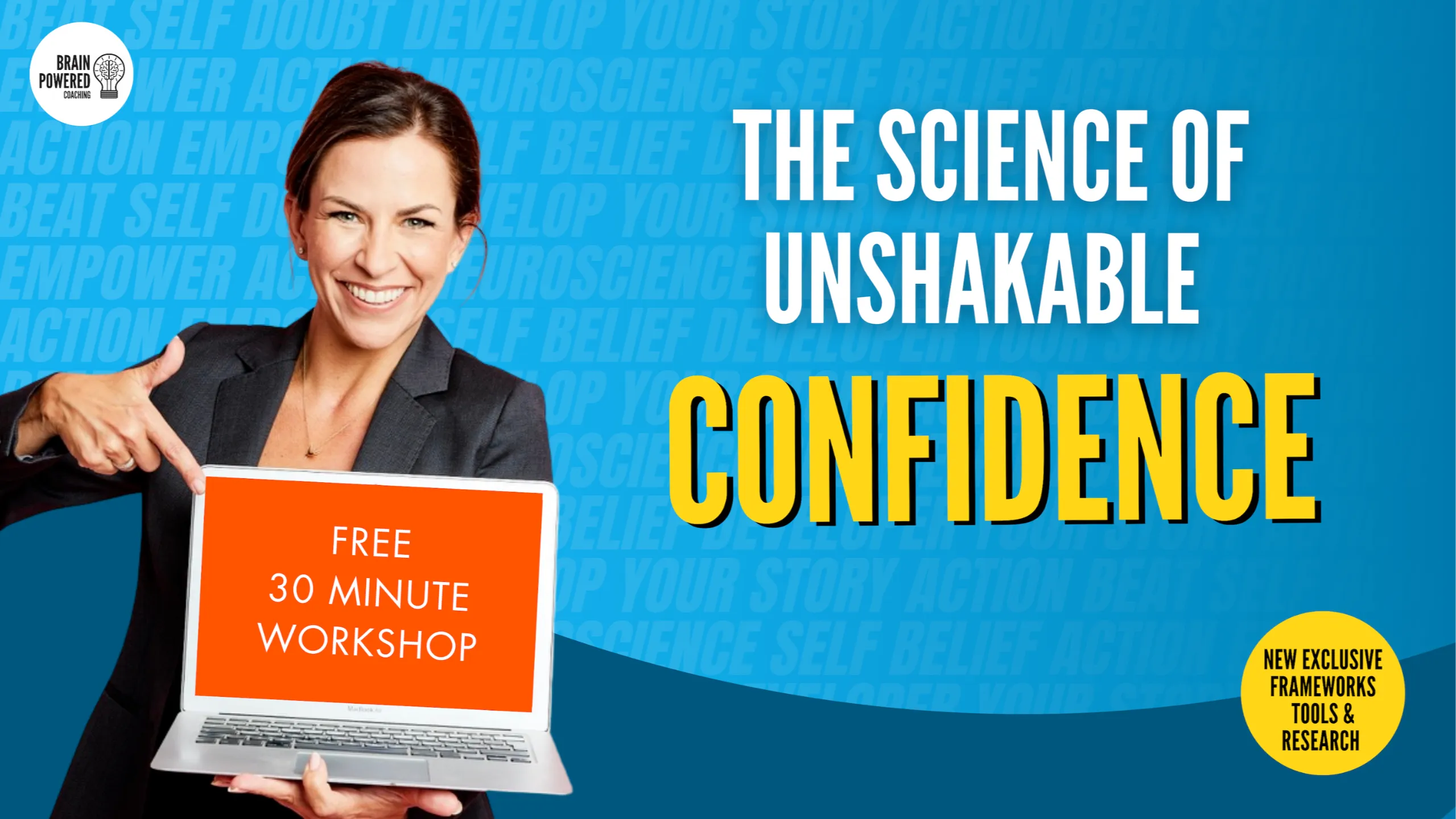EQ ❤️ vs. AI 🤖 3 Steps to a Confident Future
Jul 15, 2025
AI 🤖 can code, analyse data, and even chat with us. But can it spot fear in someone’s eyes? Our real competitive edge for the future isn’t going to be Artificial Intelligence—it’s Emotional Intelligence (EQ), and having the confidence to use it.
Why This Conversation Matters Now
It’s impossible to open LinkedIn without seeing headlines about how AI will change everything. From writing reports in seconds to predicting customer behaviour, AI is reshaping how we work.
And yet, as I work with leaders and teams globally, I see a parallel story:
- Rising anxiety about job security ⬆️
- Overwhelm from constant digital demands 🔄
- And a creeping fear: Will I still matter in a world of machines? 🤖
Interestingly, while AI adoption has doubled since 2017, McKinsey reports that soft skills like emotional intelligence remain the hardest capabilities for organisations to develop at scale. The irony? As AI becomes more powerful, the uniquely human skills we bring—empathy, emotional insight, trust-building—are becoming more critical than ever.
The Brain Science Behind Emotional Intelligence
Let’s look under the hood of our brains for a moment. 🧠
Emotional intelligence isn’t some fluffy soft skill—it’s deeply biological. It depends on how well we manage the tug-of-war between two powerful brain systems:
✅ The Amygdala → Your “threat detector.” It’s fast, emotional, and often triggers fight, flight, or freeze responses. Great for immediate danger… not so great for calm problem-solving.
✅ The Prefrontal Cortex (PFC) → Your “brain's CEO.” It helps you pause, reflect, empathise, and make strategic decisions.
Here’s the kicker:
When we feel threatened - even by uncertainty like new AI tools - our amygdala can hijack the brain in just 12 milliseconds. Blood flow shifts away from the PFC, reducing access to creativity, empathy, and nuanced decision-making.
This is why people who appear confident and calm under pressure often have one key advantage: they’ve trained their brains to regulate that threat response. I know my ability to self-regulate improved since I started regularly meditating, and I notice the difference when I don't do it.
Neuroscience gem: Research from Harvard shows that even eight weeks of mindfulness practice can physically strengthen the pathways between the amygdala and the PFC, helping us regulate emotions more effectively and maintain confidence under stress.
Why Emotional Intelligence Will Outpace AI
Let’s be clear: AI is extraordinary at some tasks:
- Pattern recognition
- Crunching huge data sets
- Automating repetitive processes 🤖
But there’s a realm where AI simply can’t compete:
- Sensing unspoken tension in a meeting
- Knowing when a colleague is close to burnout
- Repairing trust after a conflict
- Leading others through ambiguity with courage
Consider this: AI can produce an analysis recommending layoffs. But only a human leader with emotional intelligence knows how to deliver that message with compassion, preserve dignity, and maintain trust. ❤️
As Harvard Business Review writes, “Emotional intelligence isn’t a soft skill—it’s your superpower in an age of automation and AI.”
And here’s where confidence comes in:
- AI confidence means feeling equipped to use new tools without fear.
- Human confidence is the courage to question, challenge, and influence decisions - even when AI suggests otherwise. 💡
The future won’t be humans or AI. It will be humans confident enough to collaborate with AI, while bringing empathy and emotional wisdom machines can’t replicate.
How to Build Future-Proof Confidence and EQ
So how do we strengthen emotional intelligence and keep our brains in that smart, regulated state - even as AI reshapes work? Here's 3 science-backed strategies I share with leaders and teams:
1. Master Your Threat Response
Tool: The RAIN Technique ☔
- Recognise what’s happening (“I’m anxious about this new AI tool.”)
- Allow the feeling to be there, without judgement.
- Investigate the body sensations and thoughts it triggers.
- Nurture yourself with kindness and perspective.
This practice calms the amygdala and brings the PFC back online. It’s how we replace reactivity with confident action.
2. Build Micro-Moments of Regulation
Even tiny practices change your brain:
- 3 deep, slow breaths before opening a tense email
- Pausing for 5 seconds before speaking in a heated meeting
- Grounding physically—feeling your feet on the floor—to anchor yourself
Neuroscience gem: Just six deep breaths can lower cortisol by around 20% and restore heart rate variability - a sign your brain is back in balance. ⚖️
3. Cultivate Curiosity, Not Catastrophe
When facing AI disruption, the brain’s negativity bias can spiral into worst-case thinking:
- “I’m going to be replaced.”
- “I’ll never keep up.”
Instead, train yourself to ask:
- “What new skill could I learn here?”
- “How might this tool free me up for more meaningful work?”
Curiosity activates the brain’s dopamine pathways, sparking motivation and openness instead of fear. 🔍
The Real Competitive Edge
AI will keep evolving - and it’s exciting. But the future of work belongs to humans who can:
- Stay calm under pressure
- Connect authentically
- Lead with empathy
- Have the confidence to challenge the data when their gut says something’s off
“As AI transforms how we work, the question isn’t whether technology will replace us—but how we’ll rise alongside it. How are you investing in your emotional intelligence and confidence for the future of work?”
References
- McKinsey & Company. (2023). The State of AI in 2023: Generative AI’s Breakout Year.
- World Economic Forum. (2023). The Future of Jobs Report.
- Harvard Business Review. (2023). Emotional Intelligence Isn’t a Soft Skill — It’s Your Superpower.
- Harvard/Massachusetts General Hospital. (2016). Mindfulness Practice Leads to Increased Connectivity between the Amygdala and Prefrontal Cortex.
Want to know more about how to be confident? Why not try out our Brain Powered Confidence course? Click here for more details
SUBSCRIBE FOR WEEKLY LIFE LESSONS
We hate SPAM. We will never sell your information, for any reason.



